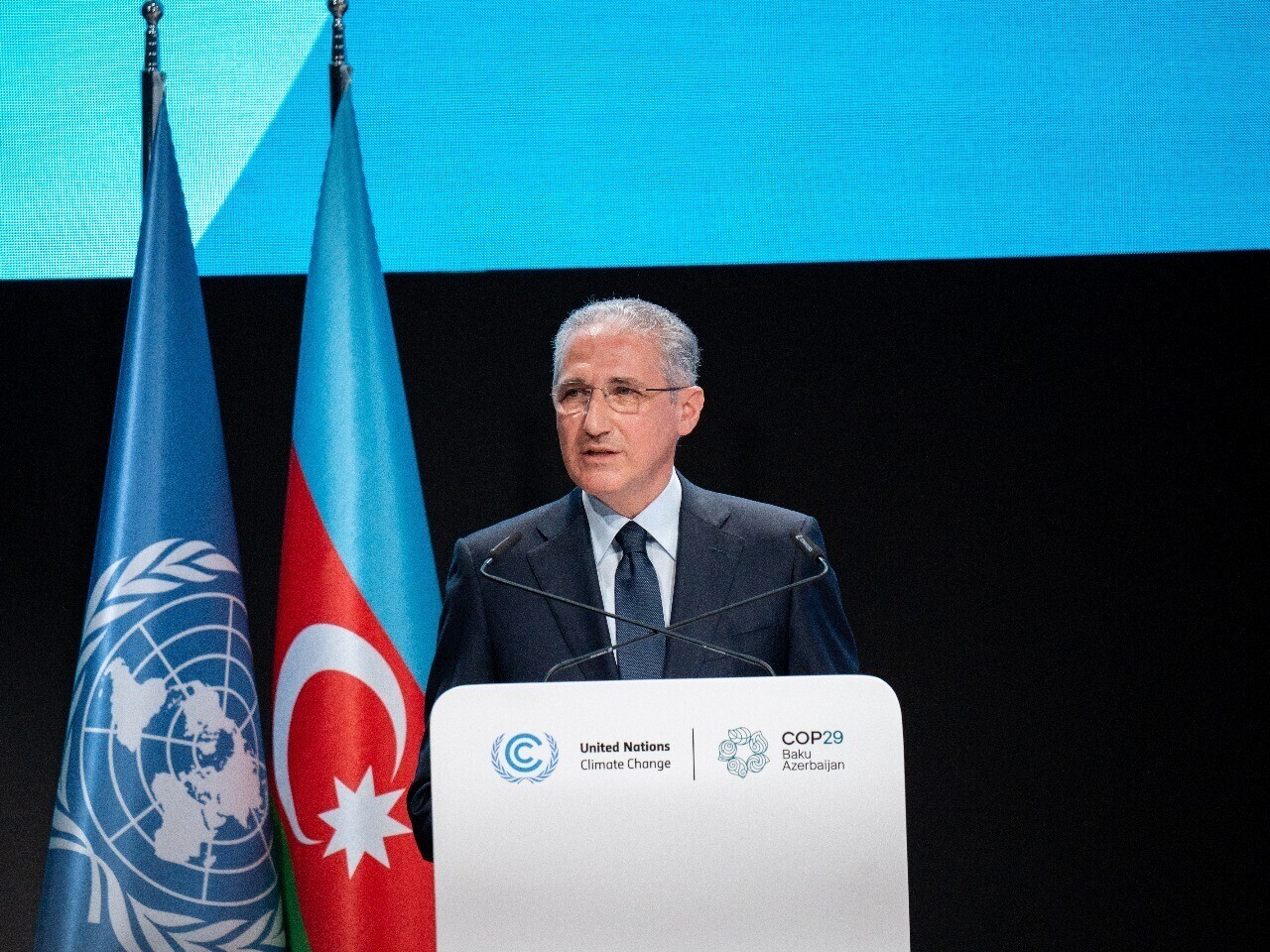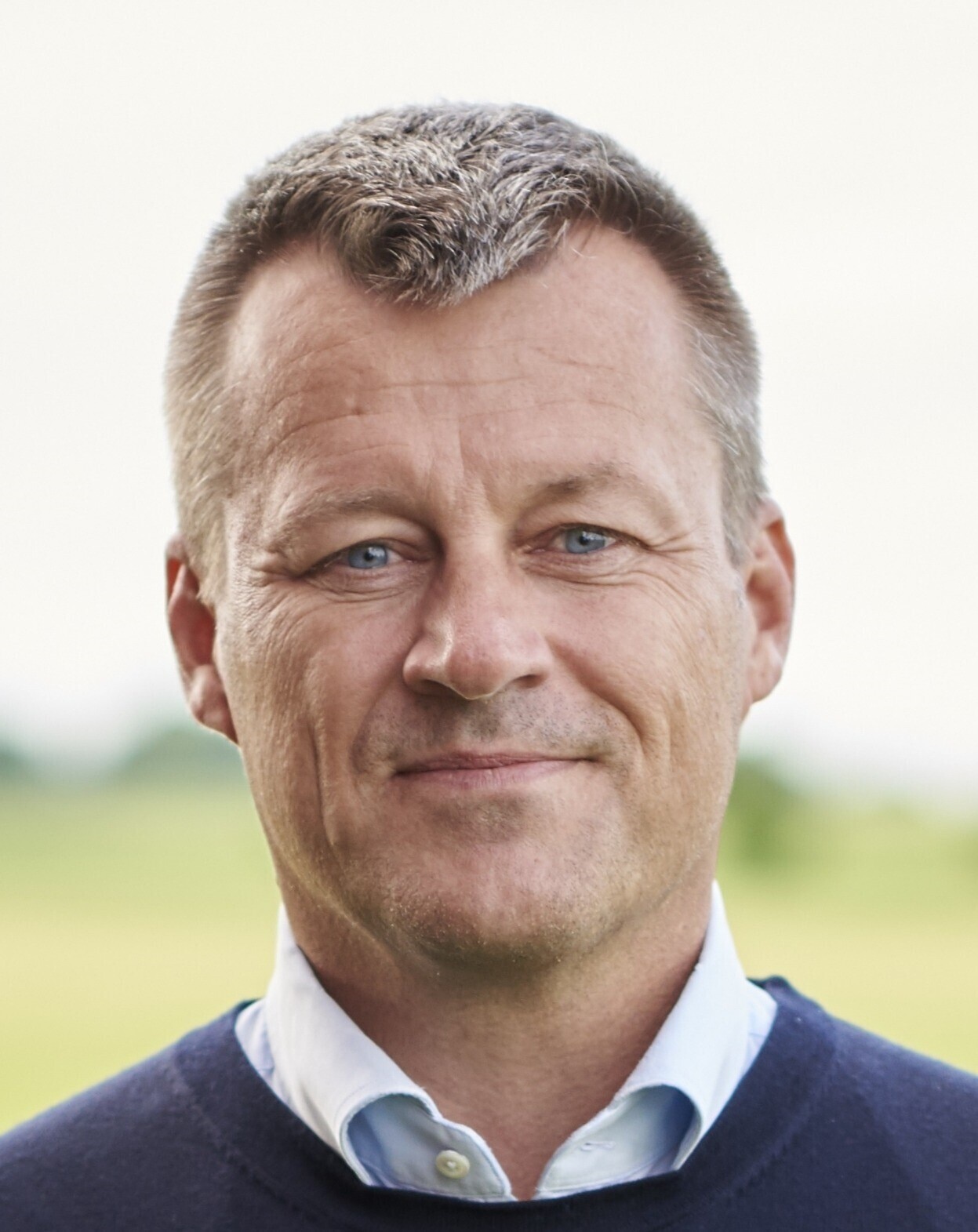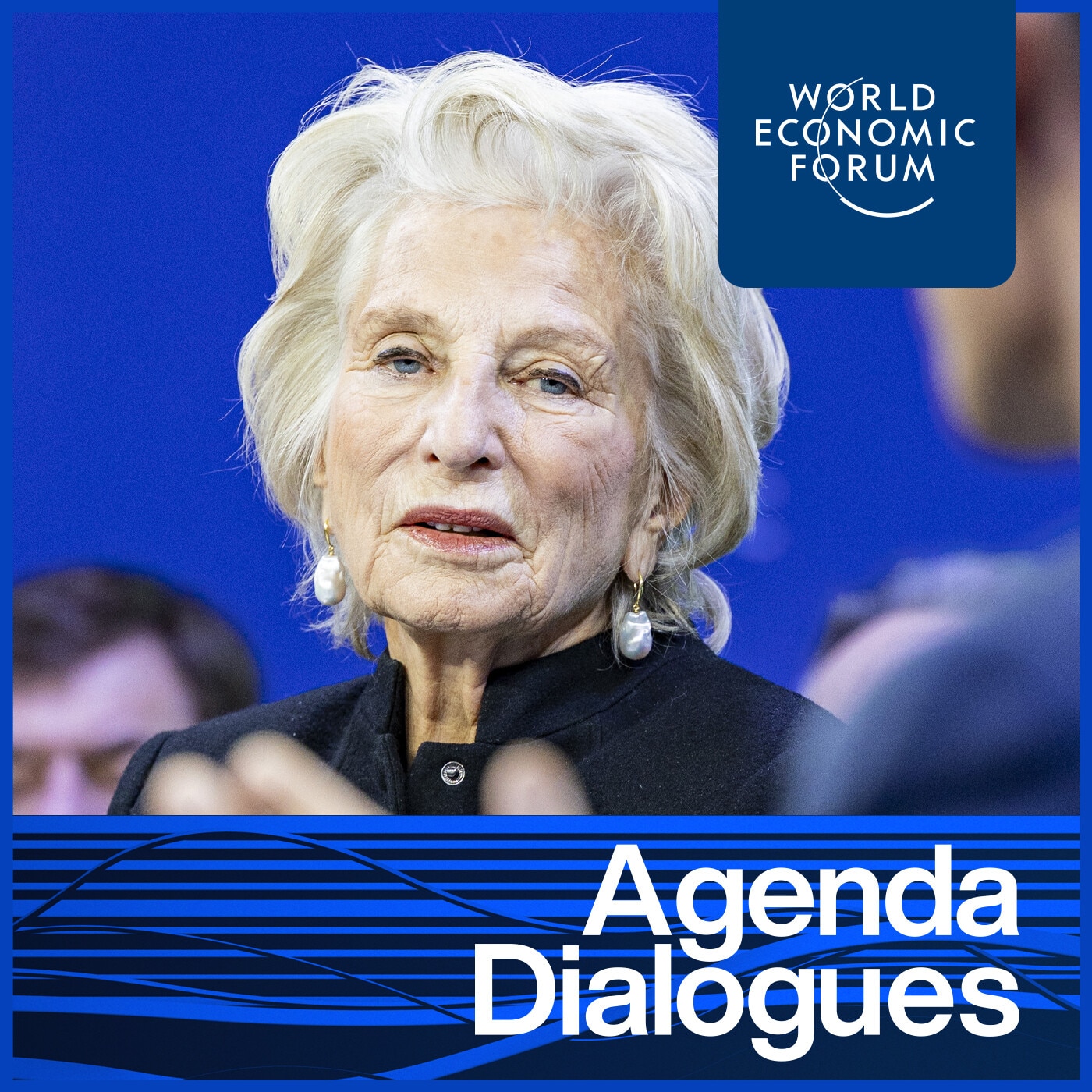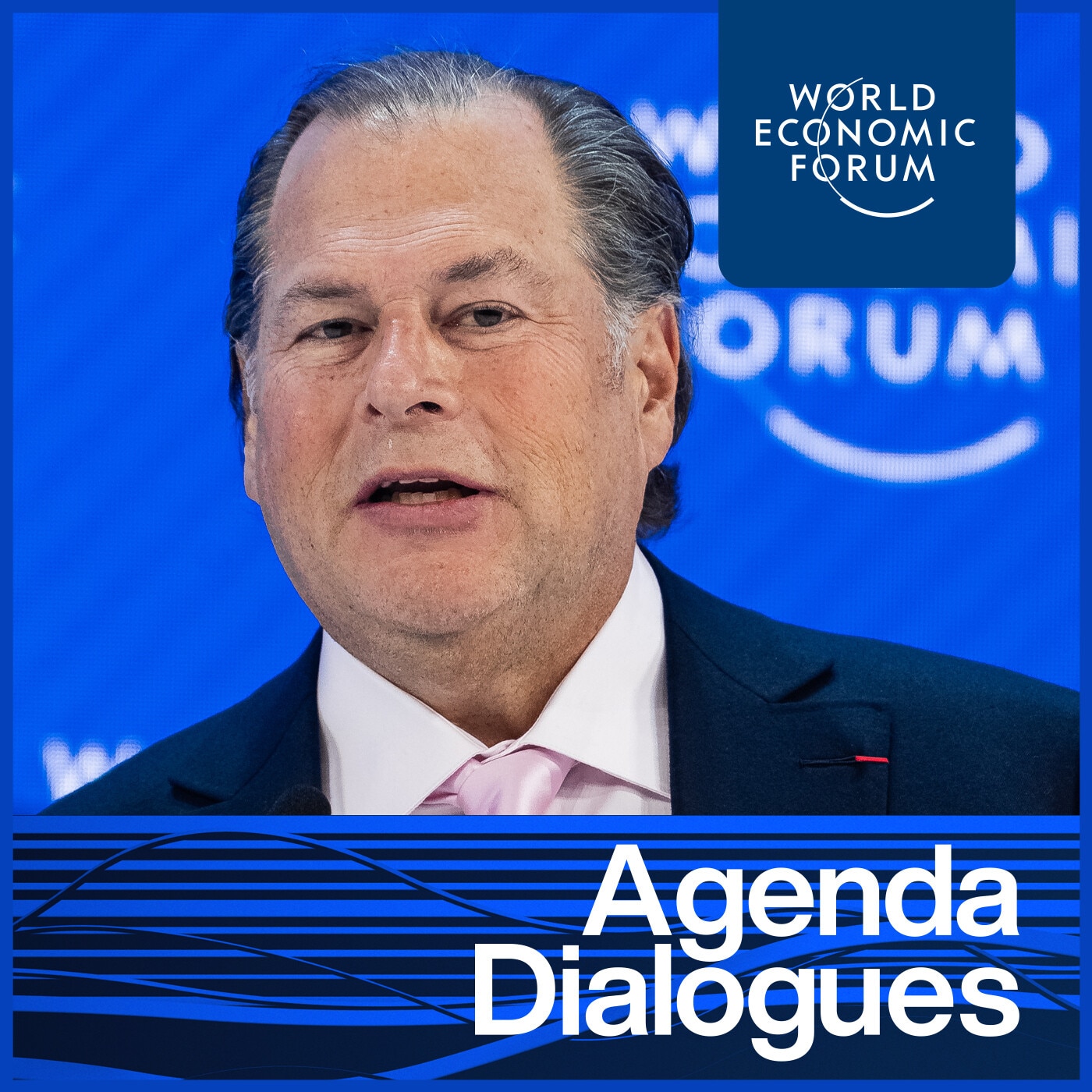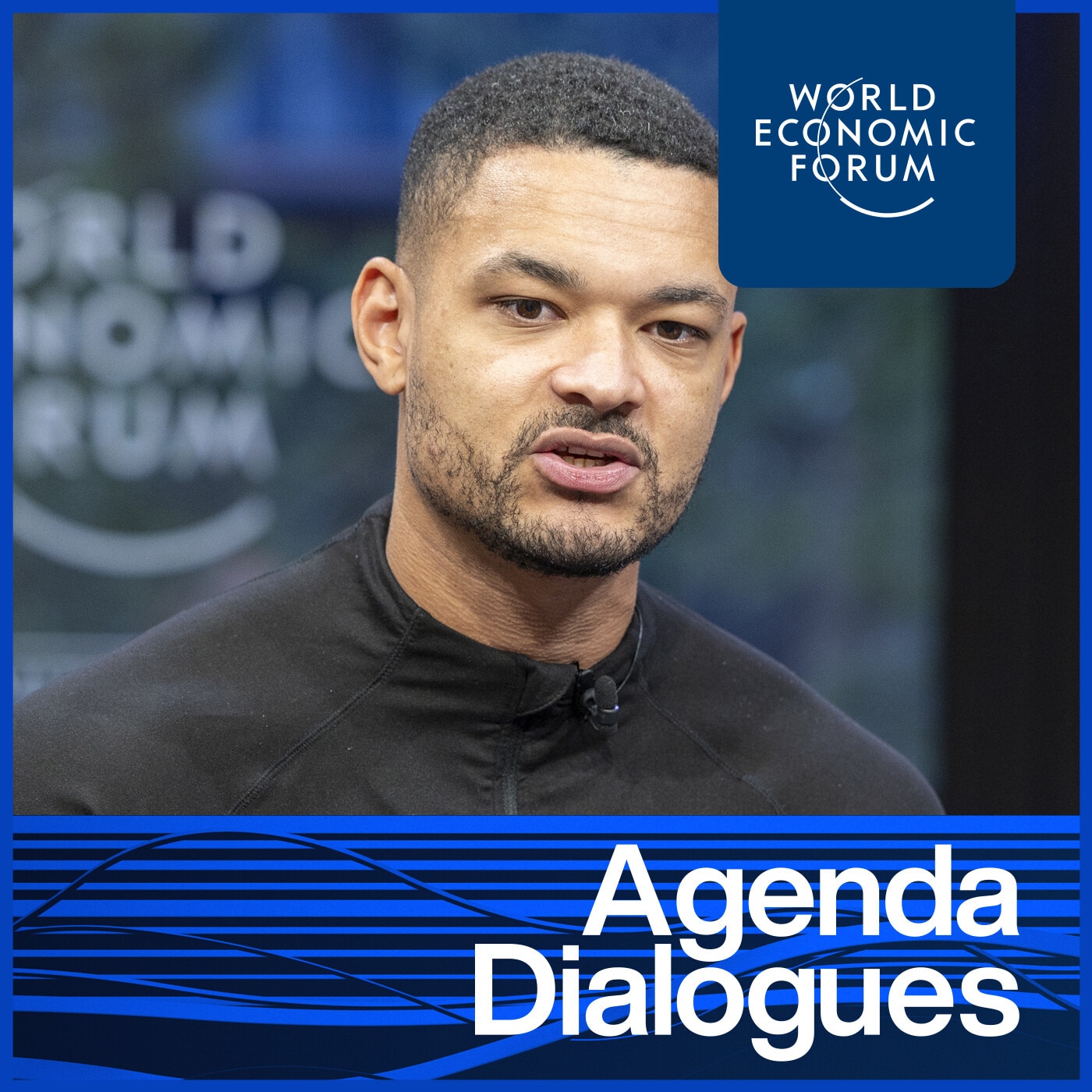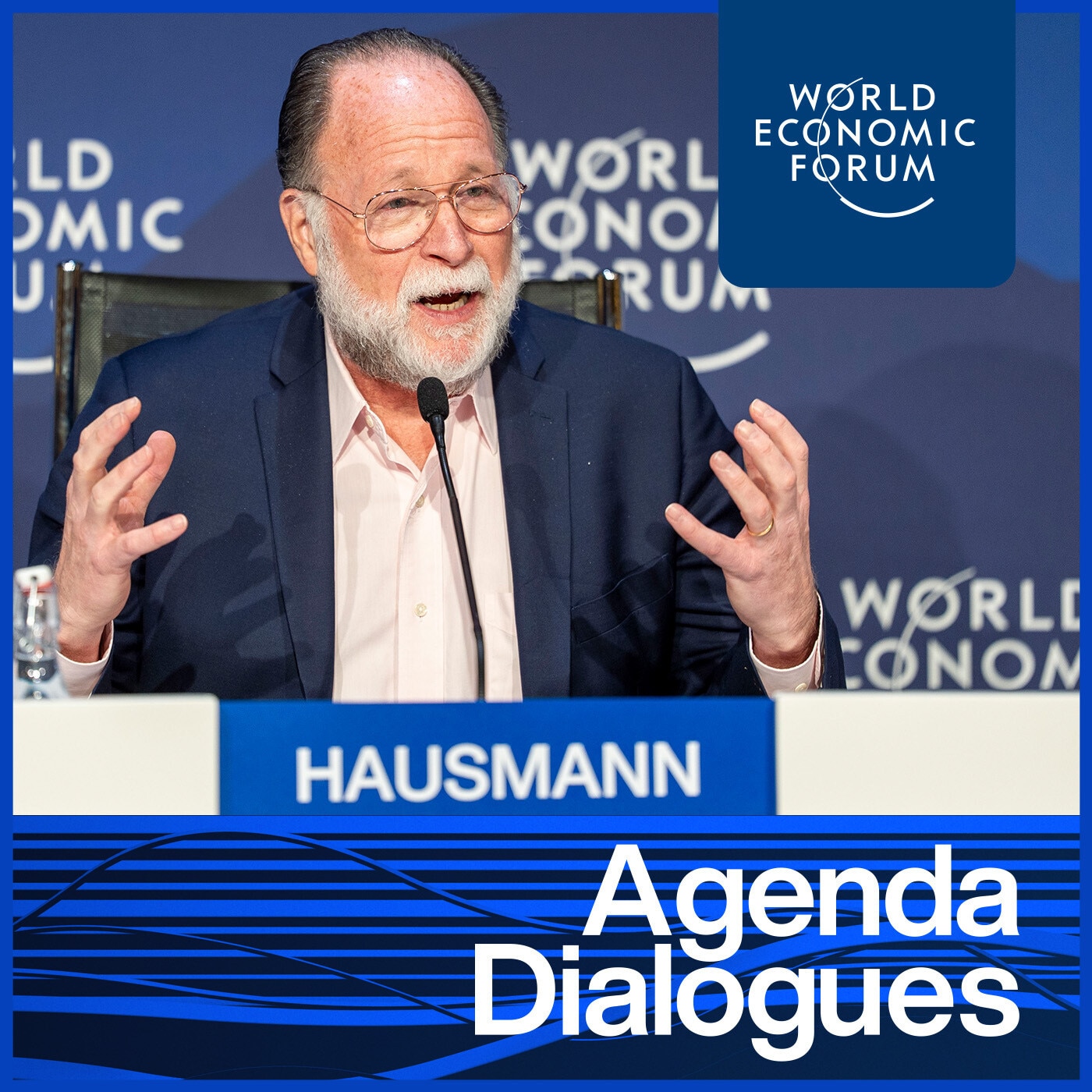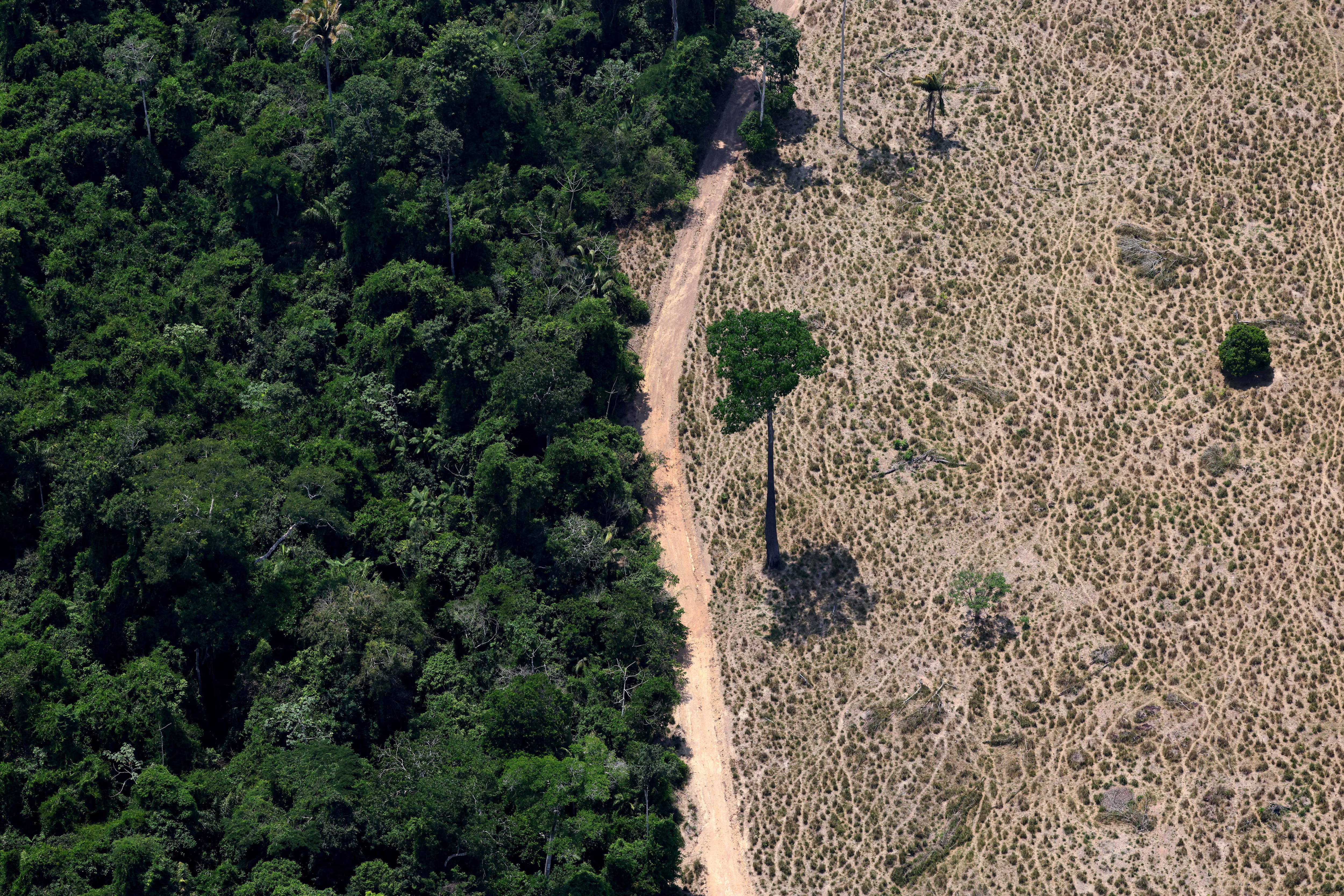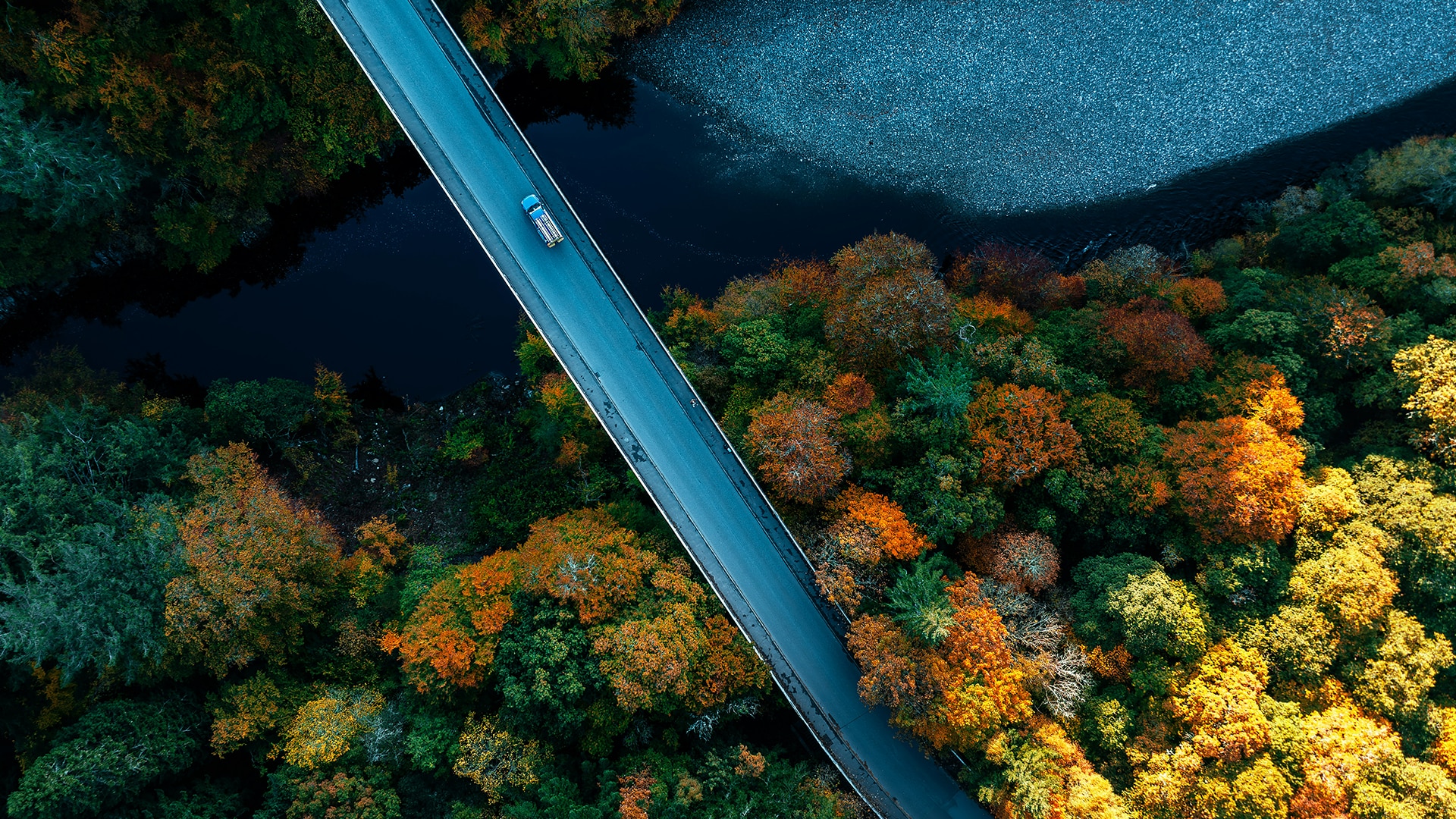Road to COP30
播客文字稿
This transcript has been generated using speech recognition software and may contain errors. Please check its accuracy against the audio.
Diana Olick, Senior Correspondent, Climate and Real Estate, CNBC
Good morning, everyone, and welcome. I can't think of a better moment in time to have this very conference. My name is Diana Olick. I'm CNBC Senior real estate and climate correspondent because the two, of course, are inextricably linked. Barely 14 hours ago, our new President Trump signed an executive order pulling us out of the Paris Agreement. So here we are. But that doesn't mean that there isn't action going forward, that we don't have COP30 ahead, that we don't have the rest of the world making ambitious goals and actions to slow the production of fossil fuels and continue the fight against climate change.
So I want to look back for a moment before we go forward and look at COP29, some of the achievements we saw, and that is, number one, a new global finance target of $1.3 trillion and developed nations committed to providing at least 300 billion annually by 2035. We had Article 6 establishing a global architecture for carbon markets, and we also had an ambitious and investable nationally determined contributions updated by some countries. COP30, of course, marks 10 years since the Paris Agreement signing. And so it's an important road ahead. It's also going to be in Brazil, which will put a focus on nature, being right by the rain forests, etc., and South America.
But I want to begin with our panels because we have so much to get to. And I'm a news person, so I always start with the news. I want to begin with reaction from, Executive Secretary Simon Stiell, of what happened last night.
Simon Stiell, Executive Secretary, United Nations Framework Convention on Climate Change (UNFCCC)
We've been here before. So, you know, that's kind of the framing for this. And the door remains open. So I think those are the two key messages. But framing that, as you know, the world is undergoing an energy transition that is unstoppable. Last year alone, over $2 trillion was invested in the transition, and that compares to $1 trillion in fossil fuels. So the signal is absolutely clear that the transition has gathered significant momentum. Even though I opened with saying we we've been here before. A lot has happened in those eight years that have passed, such as this unstoppable movement to the green transition.
Embracing it –it's very clear that it speaks to more jobs, better jobs, higher wages, stronger economies, energy security, as well as addressing the core cause of climate change, which is the burning of fossil fuels. And what is also clear in this competitive market is, the global market that we're in, that anyone who steps back from this significant forward momentum creates a vacuum that others will fill and will benefit from. So I think that is kind of that that the framing context that we find ourselves in 14 hours after that statement.
Diana Olick, Senior Correspondent, Climate and Real Estate, CNBC
Okay. And so now looking back, I want to look at COP29 for a second and bring in the President of that COP by Mr Babayev. Tell us how COP29 set us up some of the achievements you're most proud of. Some of the roadblocks that you saw and how it sets us up for COP30 this year.
Mukhtar Babayev, Minister of Ecology and Natural Resources; COP29 President, United Nations Framework Convention on Climate Change, Ministry of Ecology and Natural Resources of Azerbaijan
Thank you, dear friends, colleagues, Excellencies. Thanks for this invitation to discuss this issues today. I think of this very critical time again the beginning of the year, and we have the good chance to discuss the positions of the countries, new announcements, new positions of the different countries. And I think that this audience it's an opportunity to exchange with the ideas and also to make assessments. What we already made, what we achieved in 2024 at COP29. You know, the first time the countries agreed to contribute $300 billion for the developing world. And I think it is great success for all the world, for all the world community, because before we have not any document or any agreement between the countries with the strong intention and strong pledges to contribute to the climate agenda.
And in other one very important thing that we already prepared the program, how to increase the contributions to $1.3 trillion and invite the private sector and all other possible stakeholders to contribute to the climate agenda. That's why it's one of the main issue and we are planning to work very closely with the COP30 with Brazilian team to support them. And I think we have a lot of things to do this year. And it's a good chance. Yes, it's new challenges, but it's also opportunities. Let's think positive. We need to use these opportunities. We need to think how to do it, how to do it better than in 2024.
At the same time, you already mentioned the carbon market, the huge agreement regarding the Article 6 , 10 years of discussions. Unfortunately, previous discussions it was without any final conclusion. But in Baku countries agreed regarding the carbon markets, registrations, authorization and all other issues. And now we open the door for the private sector to reform the huge project in in green transition areas and in climate projects. At the same time, the operationalization of the loss and damage part is another one very big issue. And we thanks to all the countries, all the participants for hard work and for ready readiness for the consensus, the agreement and made this big welcome. But are there a lot of other things. But I think probably later we will discuss.
Diana Olick, Senior Correspondent, Climate and Real Estate, CNBC
Well, you mentioned corporates and that's why I want to bring in Mr. Brodin in from CEO of Ikea. You're very optimistic despite what's happened last night. You say it doesn't matter, but you want to see corporates have a bigger seat at the table.
Jesper Brodin, Chief Executive Officer, INGKA GROUP I IKEA
That's correct. And let me start by saying and congratulate you for a successful COP. I think for many of us, it was also the first time to visit your country and it was a wonderful experience. So thank you for that. We had great progress in COP. We also had great progress in the United Arab Emirates there were some historic decisions taken by the community to phase out oil and gas, to triple renewables and so forth. So I would like to say maybe one of the challenges for all of us in leading in this time, in this situation is that there is so much despair and so much fear and so much facts on the table that we are not performing as good as we should be doing. We were late understanding the impact we have on the planet.
On the other hand, there is an enormous reasons to be to be optimistic, not only the achievements in the COPs that we have seen, but if I may, so to say, because there could you could sense sometimes maybe that optimism is a little bit light. In my case, it is a very deep confidence, is because it's grounded not only in committing to the Paris Agreement and faith that this will be possible, but for us who has been on the bumpy train ride for a couple of years, we are discovering year by year how we actually not only can succeed to deliver to the Paris Agreement, but actually how it benefits ambitions.
And we are we are actually, as an Ikea community, the network of Ikea in what we refer to as Scope 3 end-to-end, turned all the way from materials all the way to customers. We have had a successful growth of our business by 24% since the Paris Agreement, and these have been very special year, as we all know. At the same time, we are now reporting -30.1% in absolute carbon, not relative, but absolute carbon. So every year that goes by, we are fairly confident that we will actually hit the target of -50% by 2030, which is the demand on any country and any organization out. Are we suffering? Obviously not. We're growing our business, so we're not suffering. But the insight is more important than that. Every time we touch carbon in our value chain, material production, transport, retailing, customers, use of Ikea products in life at home.
Diana Olick, Senior Correspondent, Climate and Real Estate, CNBC
Because customers demand it.
Jesper Brodin, Chief Executive Officer, INGKA GROUP I IKEA:
Correct. And customers not only demand it, but it's an important one. But they are actually they originally as Paris, they were more than 20% of our total footprint. Today it's 11%. So it's actually one of the ones that has improved the most radical. So what are we gaining? We're gaining enormously in cost advantages and we are gaining in brand advantages. Just so my optimism is not only an Ikea ecosystem. In the World Economic Forum, a Global Climate Alliance CEO led, we are today a community of 131 companies. The combined Scope 3 if it would be a country, it's not. But if it would be, it would be the third biggest country in the world. So it's a big community. This community is reporting +18% in business growth over the last three years and -10% in common. We're not there. We have a lot more we need to do. We need to speed up in order to make sure that we hit the targets going forward. We as a business community realized we have to work with Simon, support Simon and his agenda, and make sure that we support and work closer to the politicians setting the policies so we can enable speed, as Simon says, the road map to a transformational start, that it's massive, it's unstoppable, but it needs to go faster. So that's on our agenda.
Diana Olick, Senior Correspondent, Climate and Real Estate, CNBC
And while governments you know, I've been told by so many as I interview different venture capitalists in the climate sector, the investment firms, they all say that governments will commit billions. But really it's the private sector that will commit trillions and especially toward the energy transition, the green energy transition. Now, we've had a setback. President Trump has said that he will roll back everything and turbocharge the fossil fuel industry in America.
But I want to turn to our next panellist Damilola Ogunbiyi, she is special representative of the United Nations secretary general, chief executive officer of United Nations Sustainable Energy for All. So we have a big title and a big job. Tell us if the U.S. is pulling back on the green energy transition, but corporates are still moving forward. How does that, in your view, change the global green energy transition?
Damilola Ogunbiyi, Special Representative of the United Nations Secretary-General; Chief Executive Officer, United Nations Sustainable Energy for All (SEforALL)
Again, like everyone here, thank you for having me. I think I'll buttress what Simon is saying. This is actually an unstoppable movement now, economically, this is what makes sense. You know, I work in the other half of the world, this sometimes less sexy and not mentioned enough, which is the Global South, especially on the African continent. When I go and meet government, I don't come in with a climate agenda. I come in that this is how you can end energy poverty and this is how you can end poverty for many people. And the answer to many of that is renewables. Unfortunately, we still live in a world where 600 million people have no access to electricity at all. And 2.3 billion have no access to clean cooking. To put that into any matrix, you know, and if you if you don't care about anything else, clean cooking is the fifth largest cause of death of an African woman today. So you can't say that you shouldn't swap out to these better technologies. It's the difference between life and death for a lot of people.
Other thing that gives me so much hope is just on this stage alone, you know, between the COP presidency and Simon in terms of carbon markets and the great work Ikea Foundation is doing, leading the charge on ending energy poverty, we are already collaborating at a scale where no one can stop, you know, no one country one, no one leader making a decision because it's just the right thing to do globally. The other thing, reason why I want to focus on the Global South is that we cannot live in a world where we can have people in energy poverty and think that we can hit our climate agreement.
We don't live in a world where half of the world can do something and the other half of the world cannot. And what we're seeing is quite scary. We're seeing that there's a lot of localized pollution. You have like a continent like Africa plagued with 23-25 million small petrol gensets. These are big coal plants that you can just shut down. The ones or those type of plants. These are things that you can't regulate. You don't know where they are and you can't tell people that they can't have energy. So that's where we're really focusing on. And with that and clean cooking, you cannot get it on that scale without the carbon markets.
Diana Olick, Senior Correspondent, Climate and Real Estate, CNBC
Thank you. Governor Barbalho, you're up next. How do you prepare for COP30 and create the transition from COP29 in this new world?
Helder Barbalho, Governor of the State of Pará, Government of the State of Pará
So. Good morning. They all do like speaking Portuguese, so I recommend to use the translator facility.
First of all, I'd like to thank you for the opportunity of being here and taking part in this panel. And I would like to celebrate on behalf of Mr Babayev some of the success of COP29, which is a source of inspiration for organization of the meeting in Pará so that for the first time the greatest discussion in this realm taking place in the largest tropical forest in the world, the Amazon. And this is a big opportunity that the U.N. is allowing the planet and Brazil and the leadership of this agenda.
We have been working so that Brazil can lead by example and can play its environmental leadership role around the world. Because of its environmental conditions and because there are many biomass in its territory, the Amazon biome biome in particular, makes Brazil a reference for the climate agenda. And we wish that this COP, with its symbolism, may help us foster a constructive debate involving scientists, public institutions and private companies. And at the same time to listen to the First Nations and traditional peoples that have always lived in the Amazon.
Therefore, we hope that COP30 in the city of Belém in the state of Pará may be an opportunity to leave a legacy for the forest, for fostering bio-economics and for the continuity of one of the major legacies of Cop, the institution of Article 6 that may allow the carbon market to be duly regulated and by so do it may we start using a new world commodity. The world seeks to attain neutralization of emissions and we see two pillars in order to achieve this goal.
On the one hand, the investments and energy transition so that we can diminish our dependence on fossil fuels. And by the way, Brazil positions itself as a major player because it encourages biofuels and safe aviation fuels. And this transition and other energy matrices that reinforce this. And the example of Brazil, of which resorting to a hydropower entitles the country to have more than 80% of its energy being renewable. But we understand that the next step in biofuels and in aviation sustainable fuel can be an important step.
But we also have a second pillar, which is valuing the forest. A forest with its trees must be worth more than a dead one. And we believe that the carbon market with an incentive to strengthening our biodiversity may create green jobs, payment for environmental services and ensuring that carbon capture may bring about the compensation strategy in order to attain the goals as established by private and governmental companies and countries that have signed the Paris Agreement. It will allow us to make a check list 10 years later and to identify environmental urgencies and will help us find the pathways to face up to the environmental and economic challenges of the country.
Diana Olick, Senior Correspondent, Climate and Real Estate, CNBC
I really want to get the discussion started on what a lot of folks are seeing. And I see the optimism here, which is fantastic. But there has been a sense over the past year, despite all of the natural disasters that we have seen globally of climate fatigue.
We've seen the banking sector, at least in the U.S., pull out of net zero alliances, We've seen some companies pull back from their pledges for net zero. How do we reinvigorate as we head toward COP30, which is such a momentous time for the COPs, the 10 year anniversary, the first time that we're having a Cop in three years, not in a fossil fuel producing country. How do we reinvigorate? Discuss.
Jesper Brodin, Chief Executive Officer, INGKA GROUP I IKEA
May I jump?
Diana Olick, Senior Correspondent, Climate and Real Estate, CNBC
Please, sir.
Jesper Brodin, Chief Executive Officer, INGKA GROUP I IKEA
Thank you. No, thank you. I think it is a famous late professor, interesting Swedish researcher, an optimist, by the way. He taught us to zoom out to look at the perspective in a longer term perspective. Obviously, we can look at the process as one step backwards, but it's definitely two steps forward. So when we speak of pulling out, we have to understand that the big trend, what is happening right now is that people are pulling in not only big companies and corporates, but also SMEs are on the trend towards them and discovering the benefits of being on the climate agenda, so to say. So it's important to put it in perspective. This is a transformation. It's not a small change is one of the biggest potentially we have experienced in hundreds of years, maybe in humanity. So I don't think anybody on the planet thought this would be easy. But the interesting thing is, as we as I hear my fellow panellists speak is that it makes sense not only from a more perspective, it doesn't only make sense from an economic perspective, which it does in every end of it, but if you put the argument of climate fatigue towards the fact that the majority of people all over the world today see climate change as the biggest risk, you can go to climate research as I see one of them, or you can listen to the latest numbers of 72%. People in their survey pointing out this.
In Ikea, we do a global council survey. We interview about 34,000 people at 32 markets. I think it is 68% of Ikea customers think climate change is the biggest concern of the planet. So there is no, so to say, fatigue in the perception of that. This is the crisis on the planet. What I find interesting is that the difference between country to country is quite small. In our survey, Chinese actually has the highest engagement. Europe and the US is a bit lower, but it's still very high. The difference comes when you travel down in age groups. If you go down to the 25 something and you will be up in the 80s and 90s when it comes to consumption.
Two more interesting facts that represent the societies that a few years ago what we saw that people said, we don't know what to do, we care, but we don't know what to do. Today 64% of Ikea customer say that they do take conscious actions and that means that they select and deselect brands. And if we ask them, are you prepared to pay extra? 6% say yes. That actually doesn't tell us that people don't care. It tells us that they can't afford. So the economic puzzle that we on the stage and our generation of leaders need to resolve is to make this beneficiary for economy, for cost and for people out there to make it accessible for the many people. So, again, not only ethically and economically, but also from a brand perspective as you spoke to, it would be a great risk, I think, for any organization to be against the trend that is so clear that this is what people want to see.
Simon Stiell, Executive Secretary, United Nations Framework Convention on Climate Change (UNFCCC)
Well, also responding, I would say we're in a state of crisis fatigue. So whether it's pandemics, whether it's war and conflict, whether it's cost of living, I think what we've demonstrated as a global community and the features in our multilateral processes is that we only seem to have an attention span for one crisis at a time. So as these, you know, this polycrisis environment that we've been in for the last few years, climate has been pushed down that crisis priority list. But what hasn't changed? And regardless of the geopolitical wind changes, the science behind climate hasn't changed. The impacts actually have changed in that that's simply getting worse and worse.
Diana Olick, Senior Correspondent, Climate and Real Estate, CNBC
But what about those who don't believe in the science?
Simon Stiell, Executive Secretary, United Nations Framework Convention on Climate Change (UNFCCC)
But we know that in terms of the community that believes in endorses underpins, that science is far more significant than those few voices that challenge the science and the science has actually been weaponized. And again, that is reflective of the politics. The other thing that hasn't changed are the opportunities which are glaring, which cannot be ignored. So I think one of the priorities for us going into this new geopolitical era is, I think those of us inside the climate bubble have to relook at the narrative, have to speak to not just the negatives, not just to speak of the problems which are real, but it is also to highlight the opportunities and to speak in a language that resonates with the hearts and minds of ordinary people all over the world and speaks to the issues that matter most.
And if we look at last year's political cycle. You know, speaking to people's pockets and how this impacts them is an important tenant that I think those of us in the climate bubble have ignored. We're very good at articulating the science. We're very good at articulating in highly complex terms what is going on. But I think we need to distill this further into a language that speaks to the three main constituency groups that are the cabinet rooms, governments. We have reasonably good there. Then there is the boardrooms. Yes, but you know, it's getting his voice – the Alliances that that he represents. It's speaking to business and what makes business sense. And the third is living rooms, which are the hearts and minds of the 8 billion people on Earth. And then the language that, again, they understand and how they can respond to what corporates do, what governments do.
Diana Olick, Senior Correspondent, Climate and Real Estate, CNBC
But it's interesting what you say about people not understanding that connection between it will cost them financially. And yet he's saying that they're not willing to pay. Only 6% would pay more.
Jesper Brodin, Chief Executive Officer, INGKA GROUP I IKEA
They shouldn't pay.
Diana Olick, Senior Correspondent, Climate and Real Estate, CNBC
Who should?
Jesper Brodin, Chief Executive Officer, INGKA GROUP I IKEA
Well, that is the myth we need to crack. Again, the examples are many more shows that we are gaining cost advantages. Why? If we reduce food waste by 57% like we have done, we save 57% of cost. If we implement renewable energy, we save cost. If we go to electrical mobility, we save cost. If we install circularity, we have two options rather than one from materials. So I haven't found one single area where climate smart wouldn't be resource smart and smart. And these two exist actually both in the direct supply chain or economics and sometimes through investments. But that's what businesses do, right? We make our goals for the future. We invest and we write the benefits. Sometimes we make mistakes, sometimes with benefits.
So I think we need to look at the real scenarios of big corporates who are into this transformation. There are hard to abate sectors. There are industries cement, agriculture, mining. But if you go deeper, look at the leaders of each of these sectors. There are mining companies today that are truly electrified and are benefiting economically from it and so forth. So I think I don't want to shy away from that. There is an economic transformation in it, but the assumption that it would cost more is simply not correct.
Simon Stiell, Executive Secretary, United Nations Framework Convention on Climate Change (UNFCCC)
But that's just building in debt. It's also just building in the cost of inaction. And whether that is just supply chain supply chains and the cost impacts there of climate and insurance. I mean, just look at Los Angeles, now saying to rebuilds, you know, those properties will be uninsurable. So we're moving into new territory where in these financial models the costing in of the inaction is now such a critical factor that is currently being ignored.
Damilola Ogunbiyi, Special Representative of the United Nations Secretary-General; Chief Executive Officer, United Nations Sustainable Energy for All (SEforALL)
So I wanted to bring it back to the living room, just even personally. So my daughter is going through A-levels, so that's the most difficult thing in the world, according to her. And so we've been going through a lot of things with these tutors and things. And, you know, even the counsellors in her school says you have to make sure your degree touches on sustainability, climate or air. And she's doing economics. You know that telling her that if you do not do that, you will not be ready for the opportunities that will happen. So when people say, no, everybody's hesitant, the entire education system is leaning on that is the future and trying to educate our kids now. So it can't be you know, it has to be seen as the opportunity. I mean, my eight-year-old, they have a class with sustainability and climate like a real class. You know, like how they have English maths and stuff because they want to integrate it too, in them at that age. So just as a mother, right, even if I wasn't doing this, they are teaching me about this because those are the future careers they will go into. So it's very I mean, sometimes the shocks me not if you believe in climate, if you don't, but if you believe in the fact of the opportunities that are going to happen or that happening right now, you have to embrace this and in some kind of way, because it is it is it's not even the future is now.
Diana Olick, Senior Correspondent, Climate and Real Estate, CNBC
But are you confident that the finance going into, as you say, the clean energy sector, that you will see the type of financing that going forward that we need? Because we've seen criticisms that while there were pledges made and while at COP29, we had that great pledge financial pledge that it was not enough. Now, it's never enough. Of course
Damilola Ogunbiyi, Special Representative of the United Nations Secretary-General; Chief Executive Officer, United Nations Sustainable Energy for All (SEforALL)
It's not enough. And it's also not enough because, like I was saying earlier, we have a great opportunity. The people who don't have access to electricity at all don't go dirty fast. You can go clean from the start. I don't think people realize that. But you actually have this amazing opportunity. I'm really encouraged. You know, the World Bank and the African Development Bank have a program now, Mission 300, where they're backing, they want to provide electricity, clean energy to 300 million Africans. And they're putting $30 billion of concessional financing towards that for the private sector to come and do this. We didn't hear about these type of programs at this scale five years ago. You know, so it's back to Simon's point, it's not just a climate issue, it is a development issue, you know. It is it is the way that we have to message it a bit more and put a human face to it because it really affects us all. And Mr. Babayev, you were nodding. What do you say to the critics who say that out of COP29, $300 billion was not enough?
Mukhtar Babayev, Minister of Ecology and Natural Resources; COP29 President, United Nations Framework Convention on Climate Change, Ministry of Ecology and Natural Resources of Azerbaijan
Yeah, I think the expectations from the countries and from the developed world are trillions. But I think that we the countries decided to put on the paper the figures and to consider how to increase this is very important. That the parties, all stakeholders are ready to consider any possibility to increase these contributions. You mentioned that in 2024 with the years of challenges is imagined in elections in 60 countries, 52 conflicts around the world and other all other possible risks and challenges. A lot of the weather events, I mean, the frequency of the weather events and the climate change impacts are more and more impact to the countries, not only for developing world, but the all the world of the countries or all the world and all the countries.
But in Baku, we have the huge interest to discuss and to make the consensus for this issue. And I think we go to 2025 is year of the opportunities. We need to see how to make these pledges how to make this consensus to make it. I mean in dynamic to act. And we need to work very closely with all stakeholders to support the COP30 to continue these programs. We have a lot of things to do and national adaptation plans for 2025 24-25 new indices, a lot of things to do and I think all of us will work together to support COP30 and the Secretariat and all of us stakeholders in this climate agenda. Thank you.
Diana Olick, Senior Correspondent, Climate and Real Estate, CNBC
And I'd like to open up the floor to some questions.
Helder Barbalho, Governor of the State of Pará, Government of the State of Pará
Because I need to talk.
Diana Olick, Senior Correspondent, Climate and Real Estate, CNBC
Sorry one more.
Helder Barbalho, Governor of the State of Pará, Government of the State of Pará
I understand that there is an awareness raising issue for humanity, which has to be at the centre of what we're building. So more and more we have to connect this environmental agenda and it has to be cross sectional to all the other agendas of all other sectors where any decision is made. It needs to take at the environmental aspects. It is a fact that we haven't been able to connect this urgency to private and public decision making. We still are not there, and as soon as we're able to connect the two and to put them in practice together, then we will have the necessary procedures and the necessary amount pledged to be able to face the current reality. So we need to work on two fronts.
First, by raising society's awareness about how it needs to demand the market and the consumption that it seeks, which is a sustainable one. So from a society led movement, institutions will then respond to this new reality. If there is no pressure coming from society, then we will not be able to deliver to this generation and to further future generations. And then we have to work with companies, with governments, so they foster their investments. And COP30 is going to be about putting things into practice so that everything we've been discussing, everything we've been building so far and what we're trying to raise awareness about can actually become a reality at the scale that's needed. So we're not just talking about some specific success cases, but rather we're having really things being implemented at scale. And, of course I emphasize what was said by Damilola and in the state of Para where we will have COP30 today all the students in the public education sector have to go through an environmental class as well. So they have a class on ecology, on environmental aspects, so that these new generations and youth can start implementing all of the this awareness, all of the necessary changes. And we cannot give up on it. We need to be aware that more and more climate events are going to knock at the door. And sometimes this was a discussion that would be happening between researchers and universities at the science, at the level of scientists. But today there is not a single country in the world that isn't suffering from these climate events with loss of life and sometimes with economic losses.
So it's very important for this Forum, which gathers main players in the world, to talk about how necessary it is to understand the economic impacts that these climate crises are going to mean in the future.
Diana Olick, Senior Correspondent, Climate and Real Estate, CNBC
We'd have time for questions. One question. Okay. Two questions. If we could get a question from there, we have a microphone.
Question 1 from audience
Thank you. Member of parliament in Switzerland. We heard of Mrs. Ogunbiyi, that it's about climate and economic development. And my question is to Mr. Brodin in what about the presence of Ikea in Africa? What does it need to have a bigger presence, especially in sub-Saharan Africa?
Jesper Brodin, Chief Executive Officer, INGKA GROUP I IKEA
Well, is this being recorded now? No, I think we are today. We are in basically in Northern Africa. Ikea is in a couple of countries. Our founder used to say, you know, we need to be where the mountain people are somewhere moving. And then at the same time, he left us with only one financial policy, according to him, and that was we need to earn the money before we spend it. Therefore, we are a little bit slow in our expansion, but we hope to be going South in the future.
Question 2 from audience
Thank you so much. Simon if I can ask you a question. In June of this year, there is a big UN ocean conference that France and Costa Rica are hosting. We have seen the ocean climate dialogue grow at the UNFCCC. As we head towards Brazil and the focus on nature and climate, obviously remembering about the biggest biome on Earth, which is the ocean and the critical importance of a stable ocean to a stable climate. Are there plans in terms of linking up these two big multilateral occasions and linking in the ocean agenda with the climate agenda more closely as we look towards Belém and Brazil?
Simon Stiell, Executive Secretary, United Nations Framework Convention on Climate Change (UNFCCC)
Like, well, my starting point is that caveat. It's a party driven process, so it's not a decision we make within the Secretariat. It's a decision that 198 parties need to reach. But as you said, that agenda item has grown and grown significantly. And what is becoming abundantly clear, especially last year where we had the three Rio Convention COPs, desertification, biodiversity and ourselves in climate, in the same period that the interlinkages between all of these other areas in oceans. It goes beyond just obvious. So there are moves. The agenda is growing. And so I would say from a practical point of view, when you look at how these agenda items are negotiated in their respective fora, that there must be must be a natural convergence. And as I said, we're seeing signs of that. But each has its own mandate to follow.
But I think from voices of and it starts at what's happening at a country level. I think countries are becoming very aware, especially the smallest delegations who are often in the covering the largest geographical areas and are often the most vulnerable are seeing some of the futility and having to attend so many different meetings around the world. They don't have the capacity to support where the subject matters are similar, the same, but collectively all directly impact what's happening to them in country. So we are hearing in voices and movements growing and that pressure has to be exerted within each of those negotiating fora to force those together. But we can see that convergence and it's something that we would certainly want from a practical point of view, want to see encouraged.
Diana Olick, Senior Correspondent, Climate and Real Estate, CNBC
And with that, I'm afraid we're running out of time, but I'd like to thank all the panellists. And on a note of optimism, as you say, convergence, cooperation, collaboration, investments going forward, no more climate fatigue, hopefully, as we move in. And if you are going to do any social media, I'm afraid I forgot to say #WEF25. But thank you all so much.
After almost a decade since the Paris Agreement changed the global landscape of net zero, several open questions remain on how to increase the speed and scale of inclusive climate action.
What is on the agenda for COP30 in Brazil and how can all stakeholder groups unlock a new era for collaboration on climate and nature?
This is the full audio from a session at the Annual Meeting 2025 in Davos.
Guests:
话题:
气候行动分享:
更多集:
每周 议程
每周为您呈现推动全球议程的紧要问题(英文)
